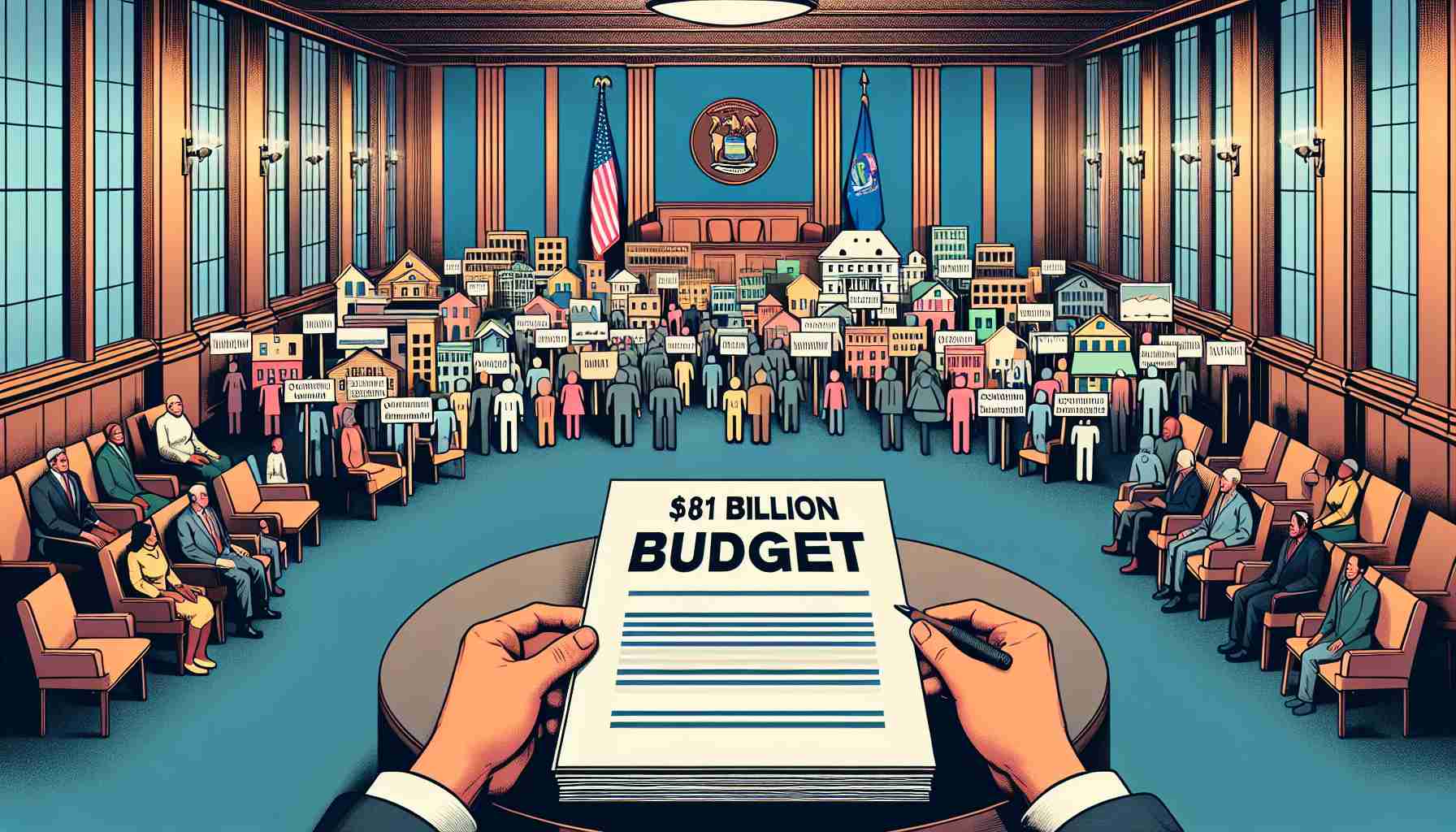In a significant departure from Governor Gretchen Whitmer’s recommendation, Michigan House Democrats have passed budget bills totaling nearly $81 billion. While Republicans criticized the proposed budget for its perceived wastefulness, Democrats argue that it will result in substantial investments for all Michiganders.
House Speaker Joe Tate, representing Detroit, expressed his enthusiasm for the proposed budget, highlighting its emphasis on strengthening Michigan’s economy, infrastructure, and people. Tate stated, “We are serious about putting people first, so our budget is centered around ensuring families are stable and local public services are well-funded. As we continue to move through the budget process, these values are at the forefront of every decision made by House Democrats.”
On the other hand, Republican Representative Matt Hall raised concerns about the growth of government and the diversion of $632 million from the Michigan Public School Employees’ Retirement System to fund the budget. Hall argued that rather than investing in road repairs, school safety, or improving accountability, House Democrats were wasting money on hiring new bureaucrats and providing subsidies for electric vehicle chargers.
State Representative Angela Witwer, chair of the House Appropriations Committee, defended the budget, describing it as fiscally responsible. She emphasized that the investments made are aimed at supporting Michiganders at the local level without increasing taxes. The budget includes allocations of $110 million for the Public Safety and Violence Prevention Fund, $15 million for community and neighborhood organizations, and $12 million for community museum grants.
Moreover, the Department of Transportation budget allocates funds for various initiatives, including $15 million for aerial drones, $2.95 million for electric bike incentives, and $5 million for implementing a road usage tax. These measures aim to adapt to changing trends in transportation, such as increased use of electric vehicles and reduced gas tax revenue.
While the proposed budget faces opposition from some Republicans, who argue that resources should be directed towards fixing the state’s poorly ranked roads, Democrats believe that investing in diverse projects will benefit Michigan communities in the long run. The fate of the budget bills now lies with the Senate, which may deliberate on them this week, following a Revenue Estimating Conference later this month to determine the state’s financial outlook for the upcoming fiscal years.
In addition to the discussions surrounding Michigan House Democrats’ proposed budget, it is crucial to consider the broader industry and market forecasts, as well as the issues related to the industry or product.
One of the significant industries impacted by the budget decisions in Michigan is the transportation sector. The budget’s allocation of funds for aerial drones and electric bike incentives reflects the state’s recognition of changing trends in transportation. With the increased use of electric vehicles, the funding for electric vehicle chargers and the implementation of a road usage tax aims to adapt to the evolving needs of the transportation industry. These measures align with the global push towards sustainable and greener forms of transportation.
Furthermore, the budget includes investments in infrastructure projects, such as road repairs. However, some Republicans argue that the state’s poorly ranked roads should receive more resources. Michigan’s road infrastructure has been a contentious issue, with concerns about road safety and its impact on the economy. The opposition to the proposed budget highlights the differing priorities and approaches to addressing infrastructure challenges.
Market forecasts suggest that there is a growing demand for investments in public safety and violence prevention. The budget’s allocation of $110 million for the Public Safety and Violence Prevention Fund indicates a recognition of the need to address these issues in Michigan communities. This investment could lead to improved law enforcement resources, community outreach programs, and initiatives aimed at reducing violence.
Another industry affected by the budget decisions is education. Republican Representative Matt Hall raised concerns about the diversion of funds from the Michigan Public School Employees’ Retirement System. This highlights the ongoing challenges in the education sector, including funding and the need for accountability. While some argue that investing in school safety and teacher support should take precedence, others emphasize the importance of fiscal responsibility and ensuring long-term financial stability.
In conclusion, Michigan House Democrats’ proposed budget has sparked debates on several issues related to different industries and market forecasts. The allocation of funds reflects a recognition of the need to invest in transportation, public safety, and infrastructure. However, the diverging viewpoints highlight the challenges in making budget decisions that cater to the diverse needs of Michigan communities. As the budget bills move to the Senate, further deliberation and analysis will shape the future of these budget proposals.
